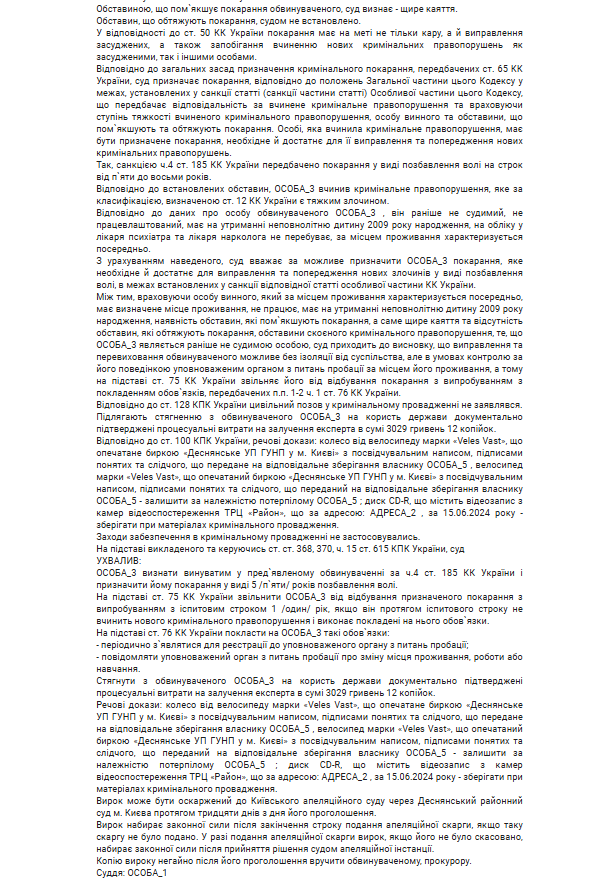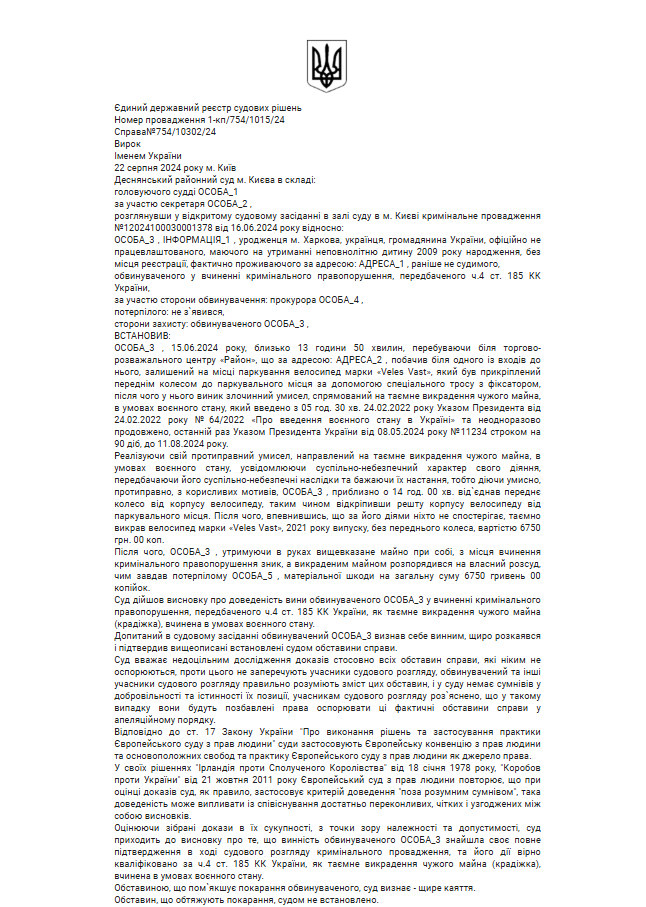My name is Yevhen Chernenko, I am a lawyer from Kyiv, I also work with Ukrainians living abroad. The key areas of my work are criminal, administrative and migration law. I have extensive experience in representing and protecting clients' interests.
Input Data: A man is accused of secretly stealing someone else's property (a bicycle) during martial law. According to the law, this is an aggravating circumstance that increases criminal liability.
Problem: The theft was committed by disassembling the bicycle (detaching the front wheel) to bypass the security mechanism. The accused acted intentionally and with selfish motives, making it difficult to mitigate the punishment.
Resolved: The defense initiated additional evidence analysis and attempted to prove that the theft did not cause significant harm to the owner and was neither brazen nor violent. At the same time, negotiations were conducted regarding possible compensation for the victim.
Outcome: The accused admitted guilt and agreed to voluntarily compensate the victim for the stolen bicycle. The victim confirmed receiving the compensation.
Result: The court, considering the circumstances of the case, voluntary compensation, and admission of guilt, decided to impose a more lenient punishment. The accused was sentenced to probation with a suspended sentence.
What is Theft?
Theft is the secret appropriation of someone else's property without the owner's consent (Article 185 of the Criminal Code of Ukraine). It is one of the most common property-related crimes.
Theft during Martial Law is a particularly serious crime that carries severe punishment. Defense in such cases requires a thorough analysis of the evidence and proving mitigating circumstances.
Theft during martial law (Part 4, Article 185 of the Criminal Code of Ukraine) is an aggravating circumstance punishable by imprisonment for 5 to 8 years. This is due to the increased public danger of the crime during instability.
The court considers the fact of martial law, intent, the nature of the stolen property, and possible mitigating circumstances (compensation, remorse, cooperation with the investigation). The defense may focus on proving the absence of intent, challenging the evidence, or reclassifying the offense as a lesser one.
Lawyer's Action Plan for Theft Cases During Martial Law:
- Initial Case Analysis and Client Consultation
- Reviewing the case circumstances and the client's position.
- Studying pre-trial investigation materials.
- Assessing risks and determining a defense strategy.
- Analysis of the Evidence Base
- Reviewing investigation protocols.
- Checking witness testimonies for inconsistencies.
- Analyzing video and photo materials (if available).
- Challenging or Supplementing Evidence
- Filing motions for additional expert examinations.
- Initiating witness interviews.
- Evaluating possible procedural violations by the investigation.
- Negotiations with the Victim
- Discussing the possibility of voluntary compensation.
- Resolving the issue of reconciliation (if possible).
- Defense in Court
- Presenting arguments for mitigating circumstances.
- Challenging prosecution evidence if its reliability is questionable.
- Working to obtain the minimum possible sentence.
- Appeal (if necessary)
- Challenging the verdict on appeal.
- Using mechanisms to mitigate the sentence.
This case highlights the importance of comprehensive evidence analysis and effective legal defense, which can minimize the consequences of criminal prosecution even in complex cases.
































